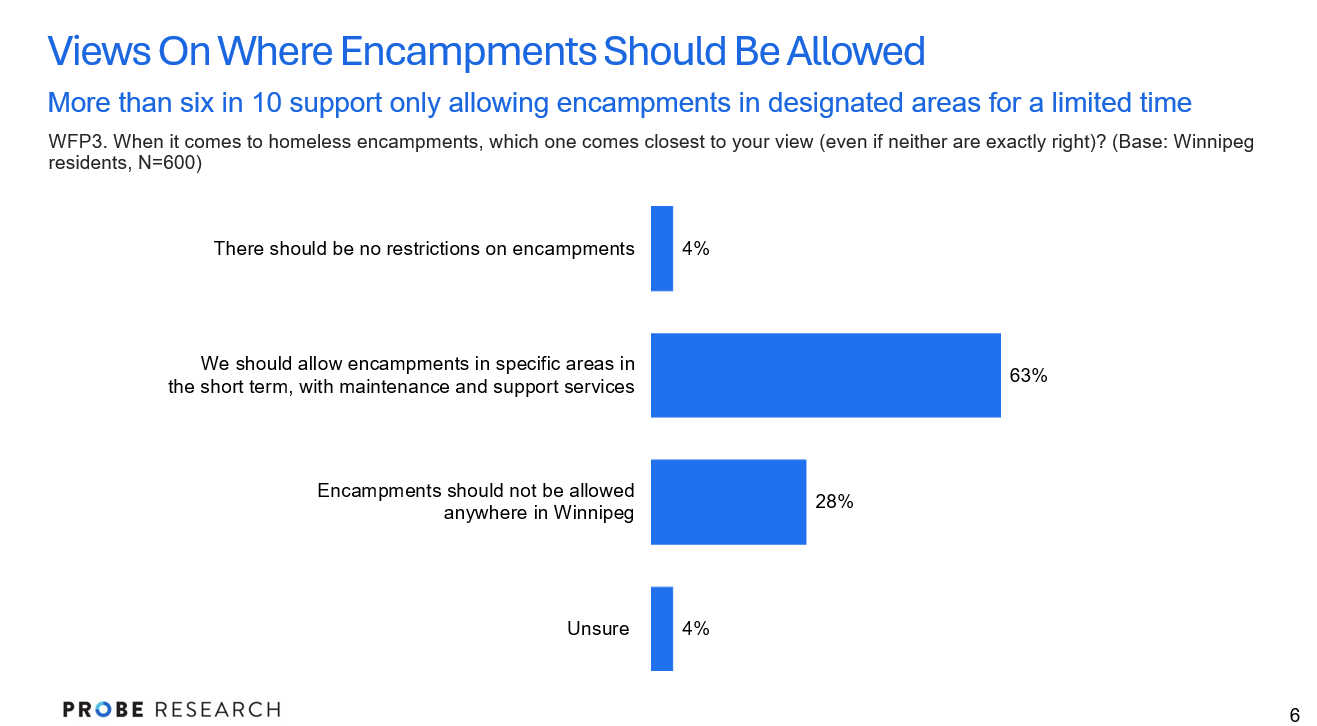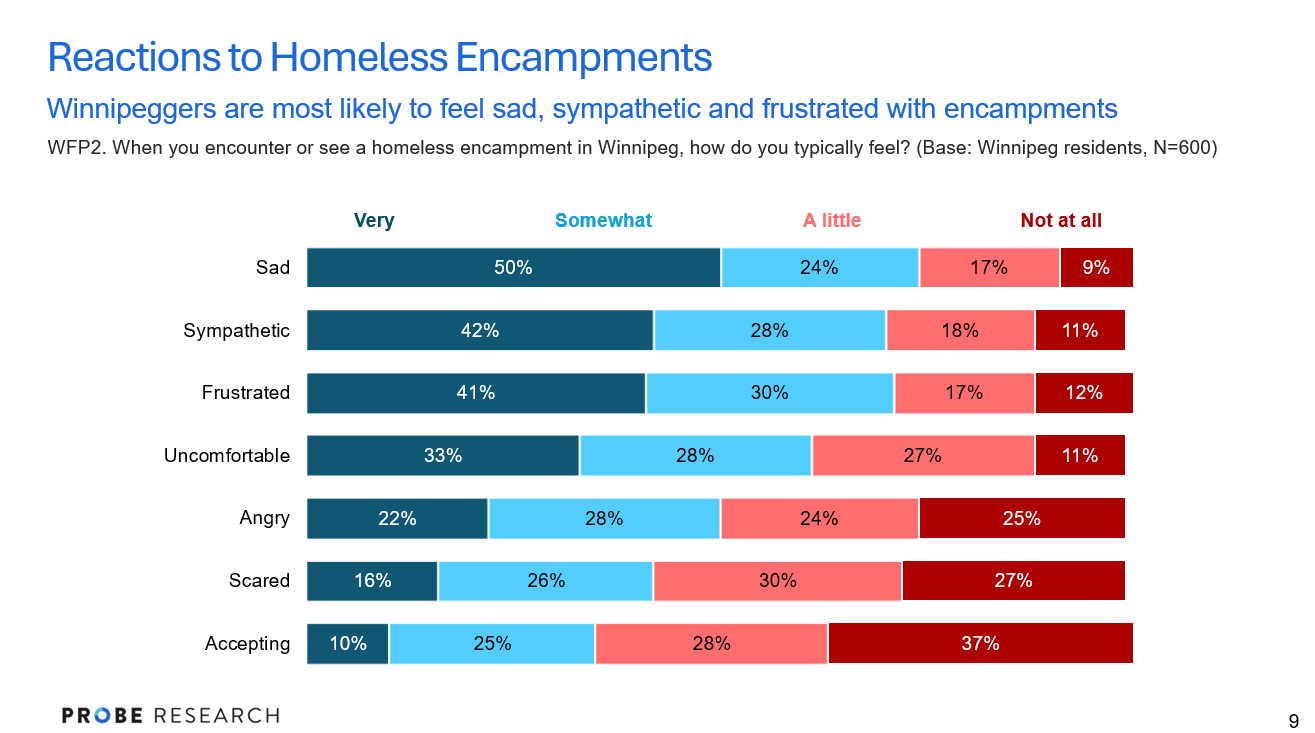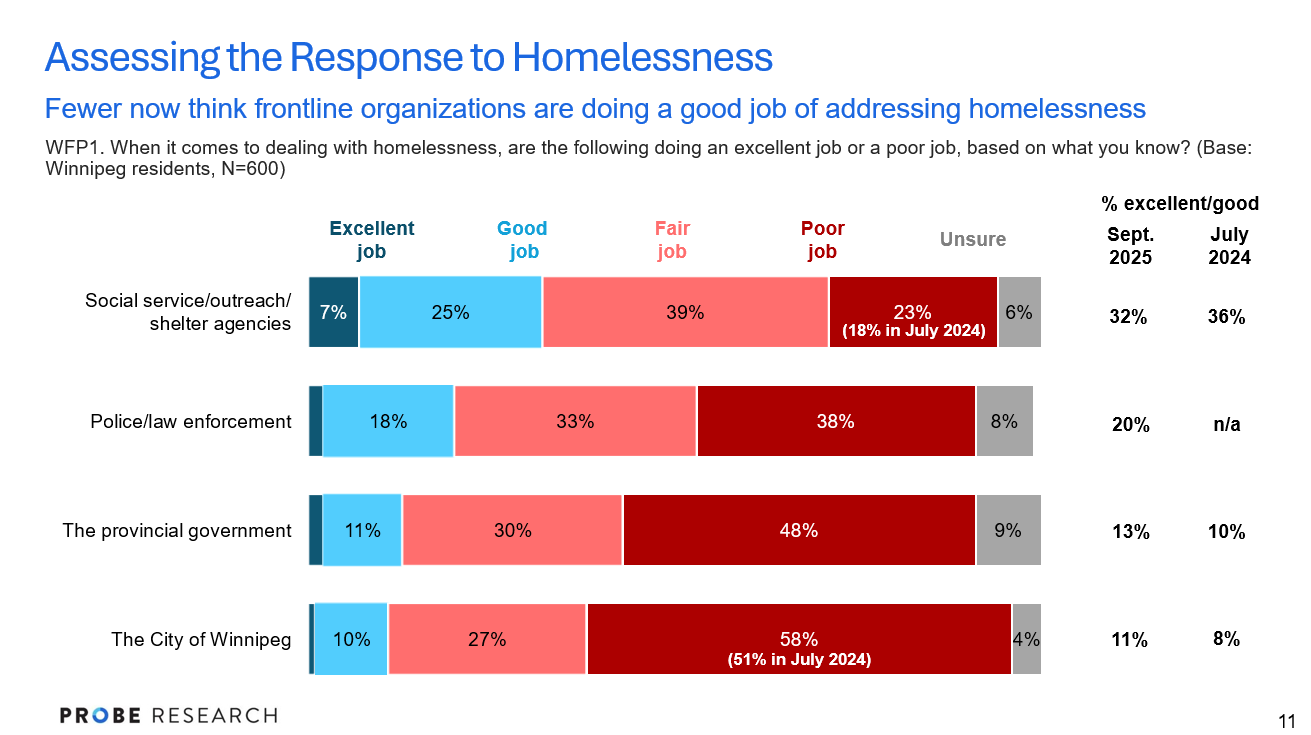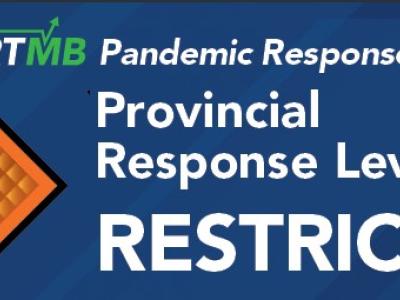Like most Canadian cities, Winnipeg is grappling with the issue of homeless encampments. Winnipeggers feel a mixture of sadness, sympathy, frustration and even anger about how to resolve the issue of unhoused people setting up shelters in parks and along riverbanks.
On Sept. 25, Winnipeg’s city council unanimously passed new rules that would limit where encampments can go – barring them from playgrounds, near bridges, rail lines or transit shelters, among other locations. Winnipeggers who live near established encampments have expressed a great deal of frustration about the perceived effects of these encampments on their neighbourhoods. But, some organizations who work with people experiencing homelessness question the effectiveness of these proposed rules and suggest they may not stand up to a court challenge.
A new Probe Research survey for the Free Press finds most Winnipeggers want firmer rules when it comes to encampments. The largest segment of the population – more than six in 10 Winnipeggers – think encampments should only be allowed in specific places, and only for a limited time but with supports in place to help those who have nowhere else to go. More than one-quarter, on the other hand, think encampments should not be allowed anywhere in Winnipeg. The proportion of people who believe encampments should not be restricted in any way is very small (4%), with the same share of Winnipeggers expressing no opinion.

There are stark differences in terms of how diverse groups of people feel about homeless encampments. Women, younger adults and lower-income Manitobans are more likely to feel sympathy and sadness when they see encampments and are also most on board with the idea of placing some restrictions on encampments along with proper supports. Older, more suburban residents are more likely to feel uncomfortable, frustrated or even angry – and are also more likely to think encampments should not be allowed. Those who voted for the Progressive Conservatives (PCs) in the last provincial election are more likely to express anger and frustration, while NDP voters are more likely to be sympathetic.

Winnipeggers continue to give governments and frontline agencies poor marks for how they are addressing homelessness. Only one-third continue to praise social service and outreach agencies for the job they are doing with encampments, with one in five crediting police for their approach. Only about one in 10 each praise the work of the provincial government and the City of Winnipeg. The proportion who think the City is doing a poor job has jumped noticeably in the past year. This negative view could change if new rules lead to fewer encampments and more people being housed, but the City and others involved in addressing homelessness have a lot of work to do to assure Winnipeggers that things are getting better.

Methodology
Probe Research surveyed a random and representative sample of 600 Winnipeg adults between September 4 and 14, 2025.
Respondents were contacted using four different methods. The sample includes 319 Winnipeg residents randomly recruited via live-agent operator, 154 randomly recruited via text message/SMS, 7 randomly recruited via Interactive Voice Response (IVR) and 120 members of Probe Research's online panel. All respondents completed the survey using an online platform.
With a sample of 600, one can say with 95 per cent certainty that the results are within ± 4.0 percentage points of what they would have been if the entire adult population of Winnipeg had been surveyed. The margin of error is higher within each of the survey’s population sub-groups.
Probe reached out to Winnipeggers through modified random digit dialing, including both landline and wireless numbers. This ensured all Manitoba adults had an equal opportunity to participate in this survey.
The sample has been weighted slightly by age, gender, region and educational attainment so it properly reflects the city’s population, based on Census data. Probe used SPSS software to conduct all statistical analysis.
The survey instrument was designed by Probe Research in close consultation with the Free Press.
Disclosure Statement
Probe Research is a member of the Canadian Research Insights Council (CRIC) and confirms that this research fully complies with all CRIC Standards including the CRIC Public Opinion Research Standards and Disclosure Requirements. Learn more here.




